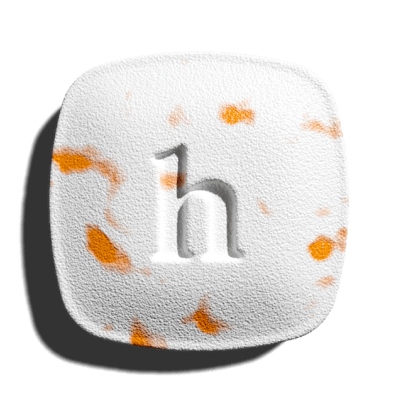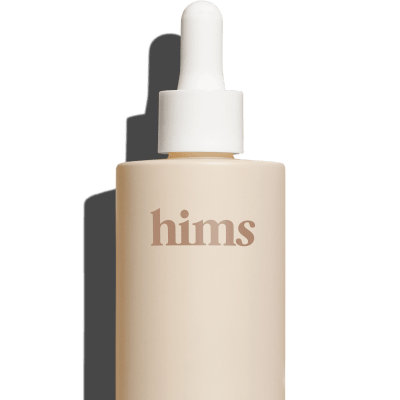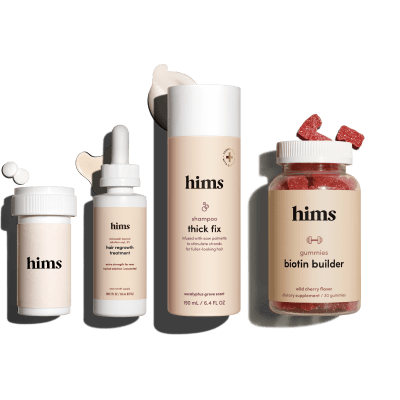Content
FDA approved for more than 25 years
Rice Water for Hair: Benefits, Risks, and Easy DIY Methods To Make Rice Water for Hair

What if the secret to strong, shiny hair was an everyday pantry staple? Well, according to TikTok, at least, it just may be. Rice water for hair is having a moment (and while it may be trending currently, it’s been used by women in China, Japan, and Southeast Asia for centuries).
Rice water is pretty much what it sounds like — the starchy water left over after boiling, washing, or fermenting rice. Here, we’ll cover the potential benefits of rice water for hair health, its history, how to make rice water (it’s easy), and any side effects to be aware of. Let’s get into it.
Content
What is Rice Water For Hair?
You may have only recently heard of rice water for hair, but it’s been around for thousands of years. Research suggests that women in Japan, as far back as the Heian period (794 to 1185 CE), rinsed their hair Yu-Su-Ru (rinse water made from rice washing). These women were said to have floor-length hair.
Even today, the Yao women of Huangluo, China, continue to use rice water to wash their hair. They’re known for their shiny, dark hair nearly six feet long. It’s hard to say if that’s because of the fermented rice water treatment or a combination of other factors like genetics and diet.
But rice water for hair is easy to make (we’ll get into that soon), and while there isn’t a ton of research behind it, some people swear by it.
more hair... there's a pill for that
Rice Water Benefits for Hair
The science on the benefits of rice water for hair is limited, but that’s not unusual when it comes to natural, easy-to-make ingredients. The lack of research doesn’t mean that rice water for hair doesn’t work, it just means more research is needed to come up with any conclusions.
Below, we’ll cover the potential benefits of rice water for hair.
Rice Water May Strengthen Hair and Add Shine
Some research suggests that rice water can reduce surface friction and increase hair elasticity. When there’s less surface friction, the hair cuticle is closed, which makes hair shinier, less prone to frizz, and easier to detangle.
Hair elasticity refers to how much hair can stretch without breaking, an important marker of strength and overall healthy hair. It also helps to create bounce in curly hair.
This research looked at rice water extract, as it found flaking associated with using Yu-Su-Ru (rice water) alone. While there isn’t an established link between rice water hair treatments and dandruff, it’s possible the solution could be too drying for your scalp if you notice some flaking after using the treatment, or you may just need to rinse more thoroughly so no starch is left behind.
Rice Water Is Nutrient-Rich
Rice water is also rich in vitamins B and E, antioxidants, and amino acids, specifically cysteine and proline, which are essential for hair health, especially for the development of keratin, which gives hair its structure.
Rice Water May Slow Hair Loss
Rice is also rich in a nutrient known as inositol. This powerful antioxidant has anti-inflammatory properties. Some research (specifically on women with PCOS) suggests that inositol has the potential to lower testosterone levels, which theoretically could help prevent male pattern baldness since the condition is primarily caused by a sensitivity to DHT, a hormone converted from testosterone.
Many people wonder if rice water grows hair. Research on rice bran mineral extract found that the substance may promote hair growth by suppressing a growth factor known as TGF-β2, which suppresses the anagen or growth phase of the hair growth cycle.
However, much more research is needed on rice and hair loss to say anything conclusive.
How To Make Rice Water For Hair
Rice water is simple to make at home, even if you’re not typically one to DIY. Here’s how:
Soaking Method:
Rinse a half cup of uncooked rice thoroughly. We recommend using organic rice whenever possible.
Place the rice in a bowl with 2 cups of water.
Let it soak for up to 24 hours at room temperature.
Strain the rice water into a clean container.
Boiling Method:
Rinse a half cup of uncooked rice thoroughly.
Boil 2 cups of water.
Add the rice to the boiling water and let it simmer until it turns cloudy.
Let the water cool completely before straining.
Fermenting Method:
Fermented rice water is thought to have even more benefits for hair because the fermentation process creates bacteria, enzymes, antioxidants, and vitamins, all of which can be beneficial to hair health. Fermented rice water is also more acidic than regular rice water, meaning it has a lower pH level, which may make it less harsh on hair.
Here’s how to make fermented rice:
Start with either the soaking or boiling method mentioned above.
Transfer the strained rice water to a clean glass jar. Cover it loosely with a lid or cheesecloth.
Let the rice water sit at room temperature for one to three days. It will develop a slightly sour smell and a bubbly appearance, indicating fermentation.
Once fermented, strain the rice water again to remove any solid particles. Store it in the refrigerator for up to a week.
You can also freeze rice water into ice cubes and pop one out when you’re ready to use it — this keeps it fresh for longer. If you prefer, you can also buy hair care products made with rice water.
How To Use Rice Water for Hair
So you’ve made your rice water. Now what? Here’s how to use rice water on your hair.
Use rice water as a hair mask before or after shampooing. Either way, it should be applied to damp or wet hair.
Coat the scalp and hair in the rice water mixture and let it sit for about 20 minutes.
Rinse well with shampoo and warm water.
Follow a rice water rinse with a conditioner or hair oil (or both). Starch can dry out hair, so you’ll need to restore moisture.
Risks of Using Rice Water On Hair
Rice water is generally safe to use on hair. While a rice allergy is rare, it’s not unheard of, and if you’re sensitive to eating rice, you should not use a rice rinse on your hair.
It’s also best to limit your use of rice water on the scalp to about once a week, as using it daily could cause starch or protein to build up on the scalp, potentially causing irritation or contact dermatitis.
If you have scalp conditions like eczema or anything else that causes scalp inflammation or irritation, speak to a healthcare provider before trying rice water as part of your hair care routine, as the starch could potentially be irritating.
Avoid using rice water on dry hair, as the high starch content in rice water hair products could create frizziness and dryness.
new hair or your money back
Rice Water for Hair: The Takeaway
Want the TL;DR on rice water for hair? We've got you covered. Here’s what to remember.
Rice water for hair has a rich history in Asian cultures and is gaining global recognition on social media. While scientific research is still limited, there’s some anecdotal evidence that rice water can help strengthen, add shine, and maybe even help grow hair.
Making rice water at home is simple and can be done using various methods, such as soaking, boiling, or fermenting.
Though generally safe for all hair types, using rice water in moderation is important to avoid potential buildup or irritation. Always follow up with a conditioner or hair oil to maintain moisture in your hair.
Unfortunately, if you’re reading this because you were hoping rice water was the secret remedy to male pattern baldness, that’s not the case — there’s nothing you can whip up in the kitchen that will restore your hair totally. But, if stopping hair loss is the goal, you’ll have better results with proven hair loss treatments like minoxidil or finasteride (or a combination of both).
If you’re wondering what hair loss treatment is right for you or are interested in prescription hair loss products at an affordable price, start the process with a quick online hair loss consultation with a licensed healthcare provider at Hims.
5 Sources
- Formoso G, et al. (2019). Inositol and antioxidant supplementation: Safety and efficacy in pregnancy. Retrieved from https://pubmed.ncbi.nlm.nih.gov/30889626/
- Greff D, et al. (2023). Inositol is an effective and safe treatment in polycystic ovary syndrome: a systematic review and meta-analysis of randomized controlled trials. Retrieved from https://www.ncbi.nlm.nih.gov/pmc/articles/PMC9878965/
- Inamasu S, et al. (2010). Abstracts: The effect of rinse water obtained from the washing of rice (YU-SU-RU) as a hair treatment. Retrieved from https://onlinelibrary.wiley.com/doi/abs/10.1111/j.1468-2494.2010.00605_3.x
- Jayaprakash G, et al. (2022). A Narrative Review on Rice Proteins: Current Scenario and Food Industrial Application. Retrieved from https://www.ncbi.nlm.nih.gov/pmc/articles/PMC9370113/
- Kim YM, et al. (2017).Rice bran mineral extract increases the expression of anagen-related molecules in human dermal papilla through wnt/catenin pathway. Retrieved from https://www.ncbi.nlm.nih.gov/pmc/articles/PMC5727428/
Editorial Standards
Hims & Hers has strict sourcing guidelines to ensure our content is accurate and current. We rely on peer-reviewed studies, academic research institutions, and medical associations. We strive to use primary sources and refrain from using tertiary references. See a mistake? Let us know at blog@forhims.com!
This article is for informational purposes only and does not constitute medical advice. The information contained herein is not a substitute for and should never be relied upon for professional medical advice. Always talk to your doctor about the risks and benefits of any treatment. Learn more about our editorial standards here.
Knox Beasley, MD
Dr. Knox Beasley is a board certified dermatologist specializing in hair loss. He completed his undergraduate studies at the United States Military Academy at West Point, NY, and subsequently attended medical school at Tulane University School of Medicine in New Orleans, LA.
Dr. Beasley first began doing telemedicine during his dermatology residency in 2013 with the military, helping to diagnose dermatologic conditions in soldiers all over the world.
Dr. Beasley is board certified by the American Board of Dermatology, and is a Fellow of the American Academy of Dermatology.
Originally from Nashville, TN, Dr. Beasley currently lives in North Carolina and enjoys spending time outdoors (with sunscreen of course) with his wife and two children in his spare time.
Education
Bachelor of Science, Life Sciences. United States Military Academy.
Doctor of Medicine. Tulane University School of Medicine
Training
Dermatology Residency. San Antonio Uniformed Services Health Education Consortium
Certifications
Board Certified. American Board of Dermatology
Publications
Wilson, L. M., Beasley, K. J., Sorrells, T. C., & Johnson, V. V. (2017). Congenital neurocristic cutaneous hamartoma with poliosis: A case report. Journal of cutaneous pathology, 44(11), 974–977. https://onlinelibrary.wiley.com/doi/10.1111/cup.13027
Banta, J., Beasley, K., Kobayashi, T., & Rohena, L. (2016). Encephalocraniocutaneous lipomatosis (Haberland syndrome): A mild case with bilateral cutaneous and ocular involvement. JAAD case reports, 2(2), 150–152. https://www.ncbi.nlm.nih.gov/pmc/articles/PMC4867906/
Patterson, A. T., Beasley, K. J., & Kobayashi, T. T. (2016). Fibroelastolytic papulosis: histopathologic confirmation of disease spectrum variants in a single case. Journal of cutaneous pathology, 43(2), 142–147. https://onlinelibrary.wiley.com/doi/10.1111/cup.12569
Beasley, K., Panach, K., & Dominguez, A. R. (2016). Disseminated Candida tropicalis presenting with Ecthyma-Gangrenosum-like Lesions. Dermatology online journal, 22(1), 13030/qt7vg4n68j. https://pubmed.ncbi.nlm.nih.gov/26990472/
Kimes, K., Beasley, K., & Dalton, S. R. (2015). Eruptive milia and comedones during treatment with dovitinib. Dermatology online journal, 21(9), 13030/qt8kw141mb. https://pubmed.ncbi.nlm.nih.gov/26437285/
Miladi, A., Thomas, B. C., Beasley, K., & Meyerle, J. (2015). Angioimmunoblastic t-cell lymphoma presenting as purpura fulminans. Cutis, 95(2), 113–115. https://pubmed.ncbi.nlm.nih.gov/25750965/
Beasley K, Dai JM, Brown P, Lenz B, Hivnor CM. (2013). Ablative Fractional Versus Nonablative Fractional Lasers – Where Are We and How Do We Compare Differing Products?. Curr Dermatol Rep, 2, 135–143. https://idp.springer.com/authorize?response_type=cookie&client_id=springerlink&redirect_uri=https%3A%2F%2Flink.springer.com%2Farticle%2F10.1007%2Fs13671-013-0043-0
Siami P, Beasley K, Woolen S, Zahn J. (2012). A retrospective study evaluating the efficacy and tolerability of intra-abdominal once-yearly histrelin acetate subcutaneous implant in patients with advanced prostate cancer. UroToday Int J, June 5(3), art 26. https://www.urotoday.com/volume-5-2012/vol-5-issue-3/51132-a-retrospective-study-evaluating-the-efficacy-and-tolerability-of-intra-abdominal-once-yearly-histrelin-acetate-subcutaneous-implants-in-patients-with-advanced-prostate-cancer.html
Siami P, Beasley K. (2012). Dutasteride with As-Needed Tamsulosin in Men at Risk of Benign Prostate Hypertrophy Progression. UroToday Int J, Feb 5(1), art 93. https://www.urotoday.com/volume-5-2012/vol-5-issue-1/48691-dutasteride-with-as-needed-tamsulosin-in-men-at-risk-of-benign-prostatic-hypertrophy-progression.html





